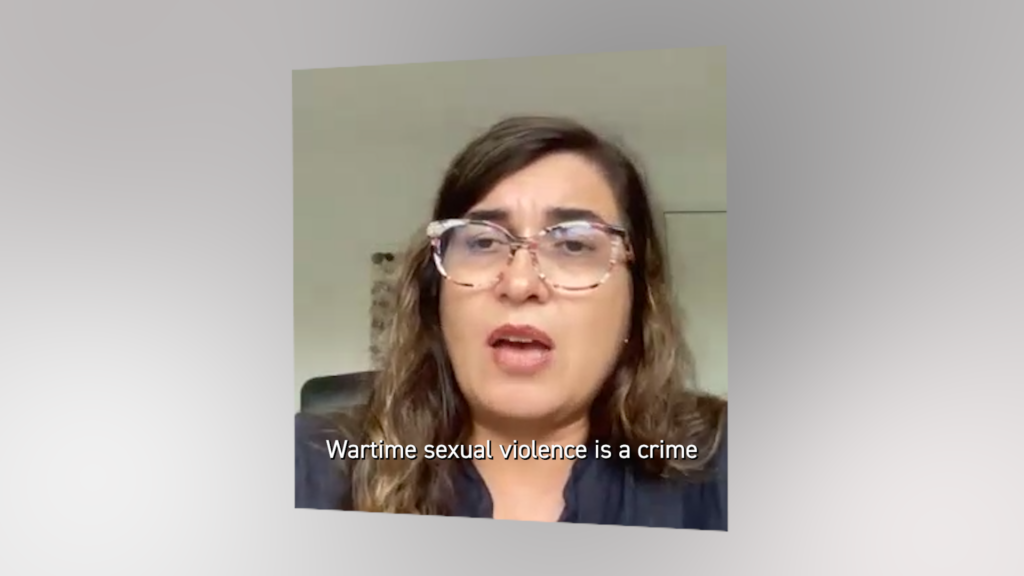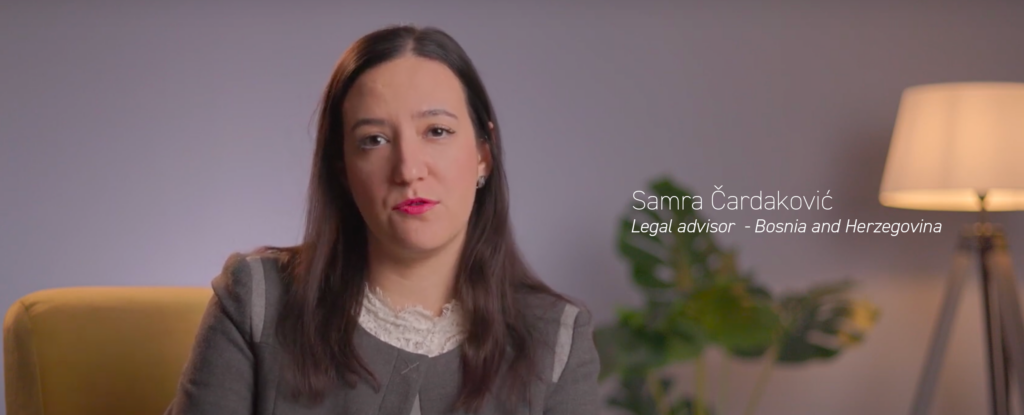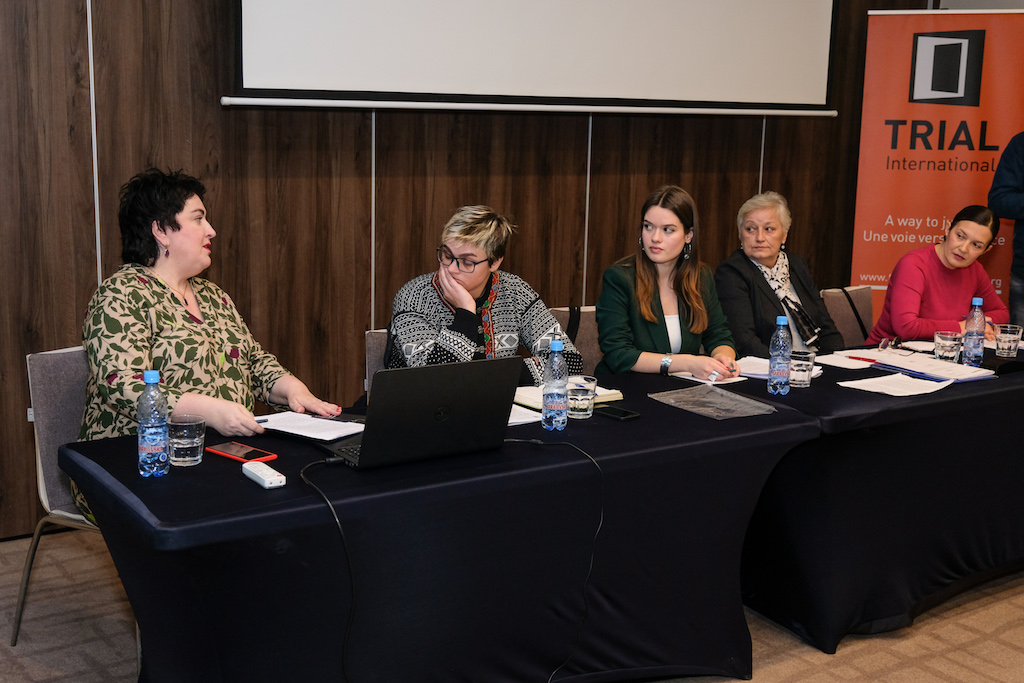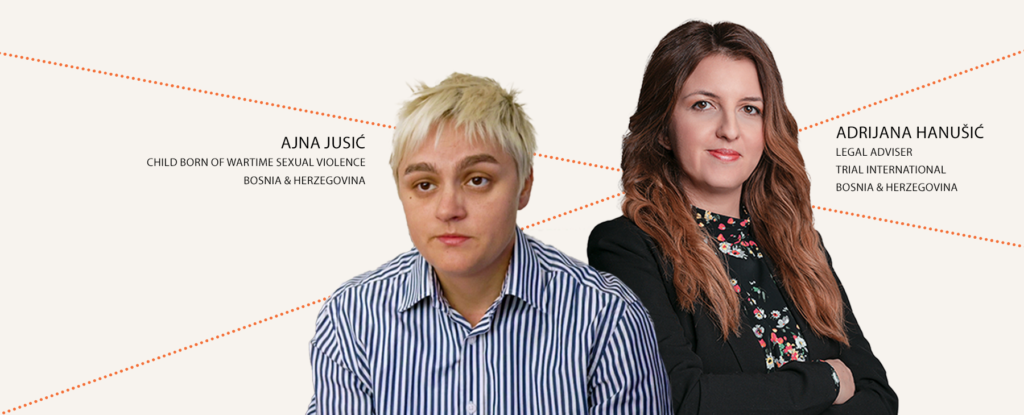BiH: “Time continues to pass by with no justice being served”
Between 28 October and 5 November 2012 Ms. Rashida Manjoo, the UN Special Rapporteur on Violence against Women, its Causes and Consequences, conducted for the first time in the history of the mandate an official country mission to Bosnia and Herzegovina (BiH).
The visit was prompted by a general allegation submitted in May 2011 by TRIAL (Swiss Association against Impunity) and 12 organizations from BiH dealing with the subject of rape or other forms of sexual violence during the war.1 The general allegation aimed at providing an analysis of the existing obstacles to the full implementation of BiH’s international obligations vis-à-vis victims of rape during the war, in particular: the inadequacy of existing criminal legislation dealing with rape; the high rate of impunity for perpetrators of rape or other forms of sexual violence during the war; the lack of adequate protection of witnesses and victims of these crimes as well as the failure to provide victims with integral reparation and prompt, fair and adequate compensation for the harm suffered.The associations subscribing to the general allegation expressly called on the Special Rapporteur to conduct a country visit to BiH to gather first hand information on the situation of women victims of rape during the war and to issue a set of comprehensive recommendations.
On 30 October 2012, Ms. Manjoo held a meeting with civil society in order to discuss the situation of women victims of sexual violence during the war. TRIAL attended the meeting, together with associations representing women from all the ethnic groups present in BiH, and highlighted the main issues contained in its general allegation.
At the end of the visit, Ms. Manjoo issued a press release containing some preliminary findings. With regard to women victims of sexual violence during the war, she declared that recent initiatives taken by national authorities could constitute a positive step forward but were nonetheless hampered by the high levels of fragmentation in legislative standards and the lack of coherence among implementing authorities that determines a concrete lack of redress for these women.
The Special Rapporteur affirmed that “it was crucial for government authorities at all levels to recognize the existence of civilian women victims of rape and torture, regardless of their ethnic or religious backgrounds, and to ensure that they have equal access to remedies and services, regardless of their physical location within the country”. She also encouraged BiH authorities to ensure that the specific forms of sexual violence and their high prevalence rates experienced by women are adequately taken into consideration when implementing any initiative to provide justice and effective remedies to victims. Ms. Manjoo reiterated that it was crucial that BiH recognizes the experiences that women faced during the war and their entitlement to justice, reparations, information and assistance on the issue of missing persons and victims of enforced disappearance.
The Special Rapporteur further noted that, while compensation and redress have not yet been guaranteed to women victims of sexual violence during the war, even access to forms of social protection remains severely limited by the lack of a homogenous social welfare system that guarantees equal access to resources and services throughout the country.
The Special Rapporteur highlighted that a prominent fear shared by many women survivors of war-time rape and torture that she met during her mission is the fact that time continues to pass by with no justice being served. In this sense, she indicated that “it was crucial to speed up efforts and achieve political solutions at State level”.
Finally, Ms. Manjoo recommended to BiH to promptly finalize the adoption of the Transitional Justice Strategy – stressing that it shall ensure the public acknowledgement and memorialization of women victims, their access to compensation, including non-material damages, and their empowerment – and of the Law on the Rights of Victims of Torture and Civilian Victims of War.
TRIAL will be actively engaged in the dissemination in BiH of the preliminary findings of the Special Rapporteur and will remain in direct contact with Ms. Manjoo to update her on all relevant developments in view of the release of the integral version of the report on the mission, which will be presented to the United Nations Human Rights Council in June 2013.
Overall Context
It is estimated that between 20,000 and 50,000 women were subjected to rape or other forms of sexual violence during the 1992-1995 war. In this context, rape was used as a means of implementing the strategy of ethnic cleansing and to increase inter-ethnic hatred. As of today, less than 100 people have been convicted for these crimes by national courts and the International Criminal Tribunal for the Former Yugoslavia (ICTY). Impunity remains rampant. The existing legal framework in BiH does not allow victims of rape or other forms of sexual violence to obtain integral reparation and compensation for the harm suffered.
For more information:
- See the integral version of the general allegation
- See the executive summary of the general allegation
- See the press release issued by the Special Rapporteur on Violence against Women at the end of the visit
- See the website of the Special Rapporteur on Violence against Women











